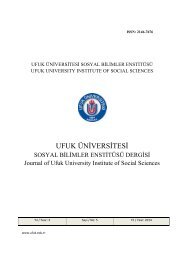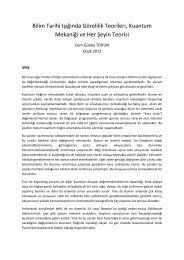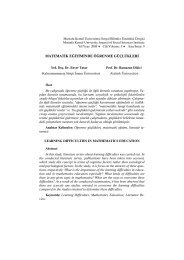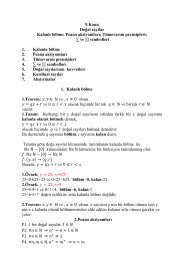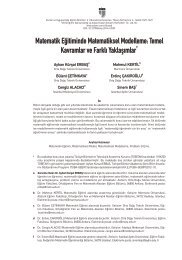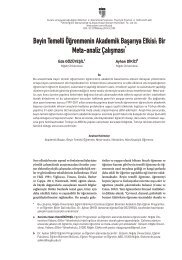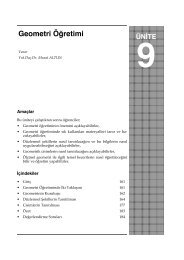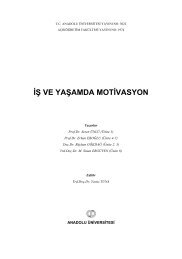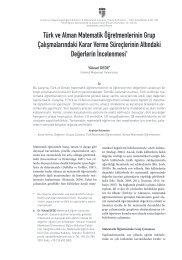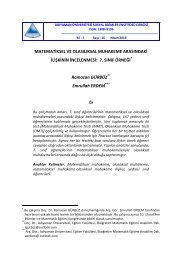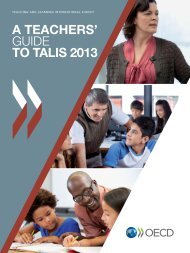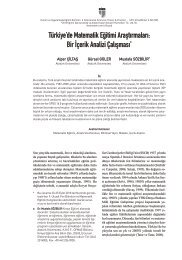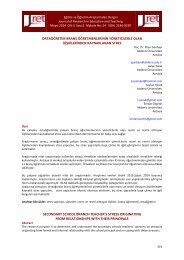NEWSLETTER
2015-12-98
2015-12-98
Create successful ePaper yourself
Turn your PDF publications into a flip-book with our unique Google optimized e-Paper software.
Societies<br />
pre-university teaching, from 1st year elementary school<br />
onwards. Finally, the SPM is one of the officially credited<br />
entities for the evaluation of mathematics school manuals<br />
and thus has an important role in the evaluation of<br />
the school manuals used in Portugal.<br />
Nurturing young people’s interest in mathematics and<br />
involvement in science and technology is also one of the<br />
goals of the SPM. The society has been active in organising<br />
the Mathematics Olympiad in Portugal for more than<br />
30 years, as well as training the Portuguese teams for international<br />
competitions. The SPM also collaborates with<br />
other scientific and academic associations, schools, museums<br />
and other institutions in organising youth events,<br />
such as maths fairs and maths games championships.<br />
In the area of mathematical research, in addition to<br />
being responsible for its research journal Portugaliæ<br />
Mathematica, the SPM has two regular meetings: the National<br />
Meeting in even years and the Summer School in<br />
odd years. Besides these, a regular biannual meeting is<br />
jointly organised with our Spanish counterpart, the Real<br />
Sociedad Matemática Española, and a few more sporadic<br />
initiatives exist, such as the joint meeting with the EMS<br />
and the American Mathematical Society (the first such<br />
event between the EMS and the AMS) that took place in<br />
Porto in the Summer of 2015 with more than 900 participants;<br />
this was the largest meeting ever organised by the<br />
SPM. In the context of science policy, the SPM is a member<br />
of the “Comissão Nacional de Matemática”, a body<br />
that advises the Portuguese government about matters<br />
concerning mathematics research. This body includes the<br />
relevant scientific societies (the SPM and the Portuguese<br />
Statistics Society), as well as all the research centres in<br />
mathematics and statistics housed in Portuguese universities.<br />
Finally, in the popularisation of mathematics, the SPM<br />
has been very active in a variety of ways. A series of public<br />
lectures for general audiences have regularly taken<br />
place in several cities all over the country, in schools, museums,<br />
science centres, bookshops and shopping malls.<br />
Regarding publishing for the general public, in addition<br />
to the Gazeta, agreements with some Portuguese<br />
commercial publishers have allowed the production of a<br />
number of books, although in recent years, dire economic<br />
constraints have forced a strong curtailment of this activity.<br />
In spite of the difficult economic situation, over the<br />
last few years, an important SPM initiative in raising<br />
public awareness of mathematics was possible due to a<br />
project funded by the Portuguese Government and the<br />
European Union. The “Isto é Matemática” (This is Mathematics)<br />
series of 91 short movies (http://www.spm.pt/<br />
istoematematica/) was broadcast weekly over two years<br />
on a Portuguese TV cable channel and became a very<br />
popular show. The first 13 episodes have been translated<br />
into English and disseminated by the RPA Committee<br />
of the EMS (http://www.mathematics-in-europe.eu/). An<br />
agreement with the Universidad de El Salvador for translation<br />
into Spanish of the first 13 episodes is currently<br />
under negotiation. The popularity of the award winning<br />
first series led to the financing of a new series of 52 epi-<br />
Figure 3: “Isto é Matemática” (This is Mathematics) the popular SPM<br />
TV series.<br />
sodes by Vodafone Portugal and these are currently in<br />
production and will start being broadcast in November.<br />
Summing up, in all areas of activity its founders envisioned<br />
as important 75 years ago, the SPM has been<br />
able to imprint its mark on Portuguese society and, in<br />
some cases, its presence and intervention has extended<br />
far beyond the most optimistic expectations. Currently<br />
with 954 individual members and 10 institutional members<br />
(mainly, but not exclusively, mathematics departments<br />
of Portuguese universities), the SPM is a strong<br />
voice in defence of research, teaching and popularisation<br />
of mathematics in Portugal.<br />
In recent years, the financial difficulties experienced<br />
in the country (with reflections felt in economic life, both<br />
at a personal level and in the curtailment of funding for<br />
higher education research and training programmes, as<br />
well as financial support for activities by scientific societies)<br />
has resulted in a situation with potential nefarious<br />
consequences for Portuguese science, a perspective that<br />
deeply worries all Portuguese scientific societies, including<br />
the SPM.<br />
Fernando P. da Costa [fcosta@uab.pt]<br />
teaches at the Department of Sciences and<br />
Technology of Universidade Aberta, Lisbon,<br />
and is a researcher at the CAMGSD,<br />
Instituto Superior Técnico, University of<br />
Lisbon, Portugal. His research interests<br />
are analysis and differential equations,<br />
particularly dynamical aspects. He received his PhD<br />
at Heriot-Watt University, Edinburgh, in 1993. He was<br />
Vice-President of the Portuguese Mathematical Society,<br />
2012/14, and has been its president since September 2014.<br />
EMS Newsletter December 2015 57




